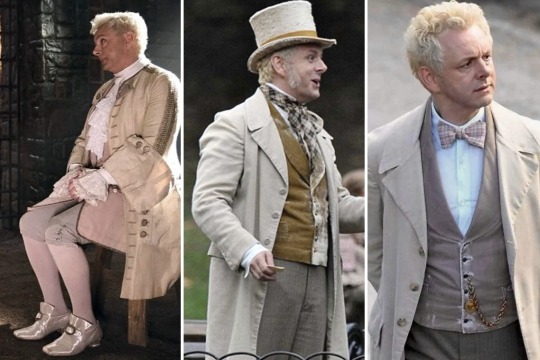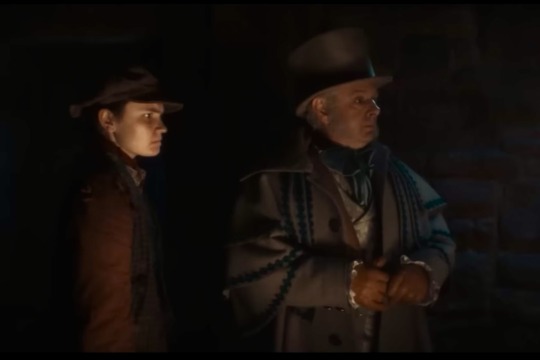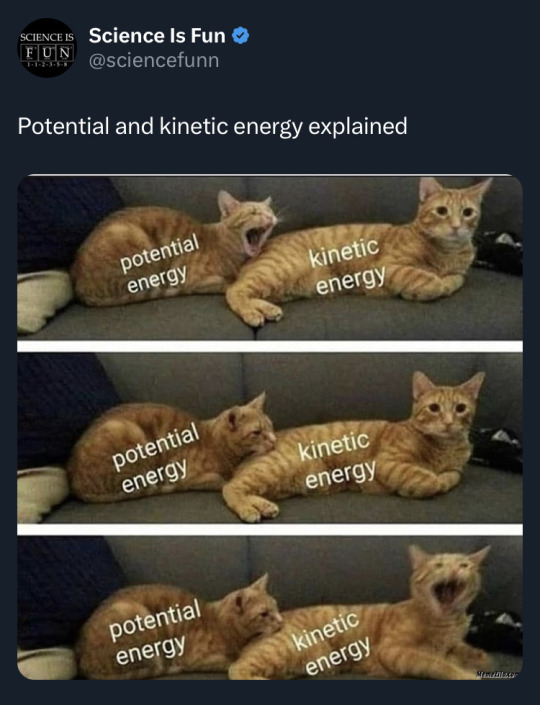#scottish philosopher
Explore tagged Tumblr posts
Text

Thomas Carlyle (1795-1881) as a Young Man
Artist: Robert Scott Tait (British, 1816-1897)
Date: 1845-1875
Medium: Oil on canvas
Collection: National Collection Trust, United Kingdom
Thomas Carlyle
Thomas Carlyle (4 December 1795 – 5 February 1881) was a Scottish essayist, historian, and philosopher from the Scottish Lowlands. A leading writer of the Victorian era, he exerted a profound influence on 19th-century art, literature, and philosophy.
#portrait#painting#thomas carlyle#scottish culture#scottish essayist#scottish historian#landscape#man#sitting#scottish lowlands#tree#costume#hat#scottish philosopher#victorian era#robert scott tait#british painter#19th century painting#fine art#oil on canvas#artwork#scottish art#european art
15 notes
·
View notes
Text

Safehouse sketches
I wanted to make this post more clean, and I thought, didn't I make a similar spread already? Lo and behold, I did. In May. And now, without looking, I drew almost the same stuff. What is it like to have long-term memory? Anyway, I hope you like more cake
#occudo's art#tma fanart#jonathan sims#martin blackwood#scottish safehouse period#i feel bad#but also it's like#I really want to make these kind of art of them#so much I done it trice#to quote the famous philosopher Julia Lepetit#merobiba you've done it again
2K notes
·
View notes
Text
It's been brought to my attention that John Simm apparently played Ebenezer Scrooge in the production of A Christmas Carol that Michael went to see tonight and now I can't stop thinking about the two of them hanging out afterward and comparing notes about the benefits of being David's Master...

#followed by a philosophical discussion about David's kissing technique#for science#michael sheen#welsh seduction machine#david tennant#soft scottish hipster gigolo#john simm#doctor who#at this point the subtext might as well be a billboard#still thinking about Michael saying they would have to bring David back as the Doctor#so he could play the Master opposite him#very very married#michael is about as subtle as a drunken llama on roller skates#and i am here for it#iconic#yes#ineffable lovers#gif by me
31 notes
·
View notes
Text


On January 13th 1796 John Anderson, founder of Andersonian Institute died.
Born in Rosneath in Dunbartonshire, Anderson graduated MA from the University of Glasgow in 1745. After working as a private tutor, he was appointed Professor of Oriental Languages at the University in December 1754. In 1757 he transferred to the Chair of Natural Philosophy.
Anderson was an energetic character, who served as a soldier during the Jacobite rising in the 1740s; published academic texts on subjects including experimental physics and the use of field artillery; designed a cannon, which he presented to the French nation in 1791; and in 1772 installed Glasgow's first lightning conductor on the College steeple. He was a friend of the University's instrument maker, James Watt, who worked on a steam engine for him.
The Professor was also a quarrelsome individual who became heavily involved in the factional squabbling and costly litigation which plagued Glasgow University during the late 18th century. Embittered by the experience, he bequeathed his estate to found a new university in the city. Anderson's Institution, one of the "ancestors" of the University of Strathclyde, was founded by his executors in 1796.
The second pic is the old Anderson's College buildings in George Street in the late 19th century.
10 notes
·
View notes
Text

Title/Name: Adam Smith, date of birth unknown, circa. (1723–1790). Bio: Scottish economist and philosopher who was a pioneer in the thinking of political economy and a key figure during the Scottish Enlightenment. Seen by some as "The Father of Economics" or "The Father of Capitalism". Country: United Kingdom Wojak Series: Chad (Variant) Image by: Unknown Main Tag: Adam Smith Wojak
#Wojak#Chad Wojak#Adam Smith#Chad#Chad Series#Scottish#economist#philosopher#pioneer#political economy#Enlightenment#United Kingdom#Economics#Capitalism#Adam Smith Wojak#Writer Author#Writer#Author#White#Gray
1 note
·
View note
Text
The Night That Changed an Angel (or, why does Aziraphale still wear that shabby vest?)

Mini-Meta Musing (#4)
I've been brooding for a long time about, of all things, Aziraphale's worn velvet vest and the long cream jacket he's kept in "tip top condition for over 180 years now." I love the sweet familiarity, but this is the same angel who popped across the Channel and almost lost his fluffy-topped head in 1793 for dressing like an aristocrat.
"I have standards!"

He's the height of elegance, extravagance even. A dandy. We've seen the same at the Globe Theater 1601, Edinburgh 1827, and even as a Knight of the Round Table in 527 Essex, where he's wearing a glorious pelt across his shoulders! However, sometime after Edinburgh 1827, Aziraphale's stylish extravagance ends. He adopts the dress of distinguished but modest gentility. No seamstresses strain their eyes for days hand stitching ruffles and trims for him any longer. When we next see him in 1862, his clothing is refined, simple, and serviceable. It becomes his uniform, with only minor replacements. Why? What happened to change him?
Edinburgh 1827 happened. And his encounter with tragedy ran over his sensibilities like a locomotive.
Aziraphale had, we were told, saved his earnings over time and had bought land, invested wisely, and became quite well off. He used real money, not miracles, to build the bookshop, paying the builders well and taking care of bills honestly. He built himself up to a more than comfortable lifestyle, from nearly nothing. And his clothes are real, not miracled from nothingness like Crowley's. (source: original showrunner)
Aziraphale's wealth allows him to afford luxurious tailoring and fancy shoes and ruffles and trims. He'll certainly pay the cobblers and tailors and seamstresses well for their labors. It will be a substantial expense for the era. (The linked post gives a wonderful perspective on 1793 lifestyles and costs.)
https://agoodflyting.tumblr.com/post/753227014283083776/why-aziraphales-white-satin-pumps-are-ridiculous
The angel's Edinburgh multilayered and trimmed top coat, soft leather gloves, matching scarf, jacquard vest, silk cravat, etc., look entirely out of place in the back alleys where the poor huddle. Walking the clean, gas-lit avenues with Crowley and Elspeth, Aziraphale is oblivious to the privilege he has in this world.

As he strolls along in philosophical banter with Crowley about the "blessing" of poverty, the angel spouts trite pontifications created by the rich to justify poverty. He genuinely believes Elspeth has more opportunities for goodness. After all, look at Wee Morag. He respects her goodness tremendously. It proves to him his “rightness.” And so he sabotages Elspeth’s attempt to sell the body she dug up in her attempt to support Wee Morag. Dalrymple gets no body, Elspeth gets no money, and Aziraphale believes he’s saving her soul.
It’s a poignant moment, though, when Aziraphale cradles the jar containing a tumor from a seven year old child who died because there wasn’t enough medical knowledge to save him. Turning point number one. It becomes Real, not a philosophical debate. Selling stolen bodies puts good in the world. He’s all for it now, and goes back to encourage Elspeth. Good heavens, he’s even willing to help this time!

But, as we know, it all goes wrong. Wee Morag is shot by a grave gun, and dies of her injuries. Elspeth steals laudanum, and plans suicide. Crowley drinks the laudanum, saves her in a compassionate Scottish frenzy, and is stolen away by hell because of his kindness. And it is All. Aziriphale’s. Fault.
Turning point number two. Another watershed moment where Aziraphale’s world changes again.
One of Crowley’s last earthly acts, before getting plunged into hell, is to have Aziraphale give Elspeth all of his pocket money. What is pocket money to the angel is a fortune to her, one that can set her up for a better life. I have no doubt that in the aftermath of the traumas of that night, missing and worrying about Crowley, Aziraphale thinks about all of this. He considers all of the money he casually spends on fine clothing and expensive tailoring. He wonders how many lives could change if that money was better spent on helping to relieve the poverty that surrounds him. He wants to help, and to try to make amends for the harm he caused. What would Crowley do, if he were free to be kind? And so Aziraphale changes.
I’d love to know the story of how it all played out. Did he sell his fine clothing and donate the proceeds? Did he become involved in charitable foundations? Did he buy the clothing of a simple gentleman and decide to preserve it, however worn it became, as a reminder to himself of his past blindness and vanity? We see in Season 1 how important it is to him to preserve that coat. (Sure, it's also a fantastic opportunity to flirt and flutter those angelic eyelashes... But, nonetheless!)

By Season 2, the angel who took too long justifying a life-saving miracle for Wee Morag, and who hesitated to give Elspeth his 90 Guineas, willingly and freely gave Maggie forgiveness for thousands of pounds of debt. I'd love to know what else he's done over the last 180+ years!
Whatever happened, it began that night in a graveyard.
#good omens#good omens 2#aziraphale#good omens meta#aziraphale good omens#aziraphale is a sweetheart#What Would Crowley Do?#WWCD#Aziraphale has a good heart#Crowley IS actually kind#wistfulnightingale#to our world
895 notes
·
View notes
Text

In physics, potential energy is the energy held by an object because of its position relative to other objects, stresses within itself, its electric charge, or other factors. The term potential energy was introduced by the 19th-century Scottish engineer and physicist William Rankine, although it has links to the ancient Greek philosopher Aristotle's concept of potentiality.
Check out @scienceisdope for more science and daily facts.
Video credit: unknown (please DM me if you know/are the creator)
6K notes
·
View notes
Text
Inspired by an 18th century Scottish philosopher and the modern scourge of misinformation, Suzanne Collins is returning to the ravaged, post-apocalyptic land of Panem for a new “The Hunger Games” novel. Scholastic announced Thursday that “Sunrise on the Reaping,” the fifth volume of Collins’ blockbuster dystopian series, will be published March 18, 2025. The new book begins with the reaping of the Fiftieth Hunger Games, set 24 years before the original “Hunger Games” novel, which came out in 2008, and 40 years after Collins’ most recent book, “The Ballad of Songbirds and Snakes.” Collins has drawn upon Greek mythology and the Roman gladiator games for her earlier “Hunger Games” books. But for the upcoming novel, she cites the Scottish Enlightenment philosopher David Hume. “With ‘Sunrise on the Reaping,’ I was inspired by David Hume’s idea of implicit submission and, in his words, ‘the easiness with which the many are governed by the few,’” Collins said in a statement. “The story also lent itself to a deeper dive into the use of propaganda and the power of those who control the narrative. The question ‘Real or not real?’ seems more pressing to me every day.”
Suzanne Collins on her new Hunger Games novel, Sunrise on the Reaping
160 notes
·
View notes
Text
The 50th Hunger Games! Haymitch’s games! We’re getting young Haymitch and Madge’s aunt and middle-aged President Snow and possibly mentions of Katniss’s family and…
#the hunger games#haymitch abernathy#suzanne collins#omg#Also when I went to preorder I saw an illustrated version of THG is coming out in October?#Oh how I’ve missed Everlark
203 notes
·
View notes
Text
i would like to see more positive content in my Online Media that isn’t like Live Laugh Love style brain dead. i wonder what that looks like:
* watermelons suddenly huge for a season
* cool scheduled asteroid or comet or eclipse ends up being actually visible + cool
* new groverhaus style image is posted in which funny subtle things are found for years to come
* two famous philosophers or whatever have a televised debate and they both lose (?)
* find out that friend under investigation by police is cleared of charges after they discover the incredibly suspicious purchase history + garage antics are due to completely legal & comically unrelated hobby project
* new scottish IDM album drops suddenly
* new computer game that doesn’t suck
58 notes
·
View notes
Text
Unknown asteroids #2

@m1nd-r0t here is part 2, enjoyyy!!
🌷Elodie (10726) – French form of Elodia, which has a Spanish origin; means “foreign riches” as in old money/inheritances, denoting the nature of both Capricorn and Scorpio; if prominent in composite, it can indicate a couple that becomes rich together under mysterious circumstances
🌷Epicles (23549) – of Greek origin; denotes an Ancient Greek medical writer who lived in 1st or 2nd century BC; prominent in medical staff and medicine students
🌷Epimetheus (1810) – of Greek origin; denotes the Titan god of afterthought and excuses; it shows which area we tend to come up with excuses (if it aspects Mars – excuses as to why we can’t start something, why we don't exercise; if it aspects Venus – excuses as to why we can’t get in a relationship, why we’re unlovable)
🌷Epikourus (5954) – of Greek origin; denotes an Ancient Greek philosopher, who founded a renowned philosophy school centered around Epicureanism; prominent in philosophers and those who think deeply
🌷Ercol (155784) – of British orign; denotes a British furniture manufacture; prominent in the charts of successful interior designers, usually by sextile or trine
🌷Fado (541741) – of Portugese origin; denotes a type of Portugese folk music which centers around death, mourning and loss; based on my research, it does show up in the charts of metalheads who are into doom metal (this asteroid usually aspects their moon), but not in the charts of goths
🌷FAIR (204873) – of English origin; well, it’s self-explanatory
🌷Fairbank (67235) – of English origin; denotes someone who gets charity money for the right cause/someone who easily attracts scolarships and sponsorships
🌷Fiammetta (50729) – of Italian origin; means “little fiery one”; denotes someone who becomes cute when angry; in the charts of very spiritual/religious people, it can show the faith that burns inside and guides them
🌷Huma (3988) – of Persian origin; denotes a bird similar to the phoenix, which is supposed to bring luck and fortune; luck that comes after a transformation
🌷Hus (1840) – of Swedish origin; means house; in synastry, if there’s double whammy aspects (person A’s Hus aspects person B’s Hus and vice versa), it’s very possible that you might live together
🌷Icke (7508) – of (old) Swedish origin; means nobody, no one; if it conjuncts Sun, it indicates a loner or someone who isn’t taken into consideration by others; a second meaning: what we find disgusting
🌷Ida (243) – of Greek and German origins; means industrious, laborious, hardworking
🌷Indulgentia (90703) – of Latin origin; means lenience, concession; in synastry, it denotes someone prone to give a second chance to their ex; if this asteroid squares the other person’s Venus and the Venus person cheats on the Indulgentia asteroid person, the asteroid person is very likely to forgive them and continue the relationship
🌷Isolda (211) – of Welsh and German origin; means “she who is gazed at”; denotes a woman who attracts the attention of both men and women due to her beauty; if it conjuncts MC, it can point out to a career as a model
🌷Jaffe (9696) – of Hebrew origin; means beautiful, pleasant
🌷Jamila (1843) – of Arabic origin; same meaning as asteroid Jaffe
🌷Lioba (974) – of German origin; means dear, beloved one
🌷Lippens (9640) – of Scottish origin; means trust, to rely on someone; a second meaning: lips
🌷Lipschutz (2641) – of German origin; means lip protection (it might be prominent in those who use lip balm frequently); in synastry, it denotes a thoughtful, caring lover, who kisses softly
🌷Meesters (10647) – of Dutch origin, means master (of something), boss
🌷Megaira (464) – of Greek origin; she is one of the 3 Furies/Erinyes in Greek mythology; denotes jealousy and envy, similar to Klythia (73) and Irsha (216451)
🌷Meiden (2881) – of German origin; mean to avoid, to shun
🌷Vieuxtemps (40007) – of French origin; means “old times”, but it can also show nostalgia; in synastry, it can show connections that last decades; the friends and lover/spouse we will have during seniorhood
🌷Vetter (18377) – of German origin; means cousin
(10726, 23549, 1810, 5954, 155784, 541741, 204873, 67235, 50729, 3988, 1840, 7508, 243, 90703, 211, 9696, 1843, 974, 9640, 2641, 10647, 464, 2881, 40007, 18377)

#astro#astro community#astrology#astro placements#astro observations#astro posts#astroblr#astro blog#astro notes#asteroids
342 notes
·
View notes
Note
Asking in good faith.
The Unseelie court is:
Men who died in violent wars. Men or women who were considered wicked. Unmarried women who died in child birth
Children who died without being baptised or children who were cursed by their parents in anger.
So I am confused by your interpretation, it is wrong to change a country's mythology no matter what reason?
Folklore and mythology is, by its mostly word-of-mouth nature, subject to constant evolution / reinterpretation. We would also fervently disagree with your declaration that the Unseelie Court you describe is the only or verifiably original interpretation of the Seelie / Unseelie as a concept (which are Scottish terms, by the way, not Irish). In fact, we would argue that it is close to impossible to actually know for certain what most myths looked like in their original forms due to the aforementioned word-of-mouth spread, regional variations of similar folklore, and potentially more insidious influences, such as colonization, on existing textual documentation. For example: The entire mythology of Ireland has been inarguably changed in irreversible ways due to the influence of Christianity. Does this mean everyone should disregard all historical documentation of Irish myths, since they are tainted in some way? No, obviously not. If we did that, there would be no Irish myths.
In summary: We fundamentally reject the idea that 1) your stated definition of the Unseelie Court is the inherently "correct" interpretation, and that 2) it is wrong to build off of or re-imagine mythology in the context of its history. If this logic was taken to its extreme, the modern genre of fantasy (which inherently draws and interprets from folklore and mythology) would either not exist, or be completely devoid of the culture and humanity that makes it such a beloved genre; arguably the oldest genres in the history of fiction!
On a direct note as it concerns us specifically, we would also say that the reason our Unseelie are not intrinsically wicked (particularly in the Christianized fashion in which this concept is being applied here) is because we believe, on a philosophical level, that the concept of intrinsic wickedness is harmful. Why should unmarried women, or unbaptised children, or men who die in senseless wars be punished? How are their souls tainted by such things? We think this attitude reflects an interesting ethical bias -- which is why it is re-imagined in The Good People (Na Daoine Maithe) as a critique.
63 notes
·
View notes
Text
Fic Recs: Larys Strong (part 1)
Here is a selection of some of my favourite fics that feature Larys Strong from House of the Dragon.
Some are: character studies, fics that feature a particular paring (Larycent, for instance), and some are where he only appears as a supporting character, but I included the fic because the way the author wrote him was superb.
The fics will align with my tastes and do not appear in any particular order or rank.
I did my very best to write my notes in a way that was (mostly) spoiler free.
Happy reading!

The Hour of the Cockroach by TheSithVirtuoso
COMPLETE; 2.6k words.
Set during the events of the Hour of the Wolf in F&B, this work features a conversation between Cregan Stark and an imprisoned Larys. It's quite dialogue heavy—with all the Medieval flourishes of the ASOIAF world—but that's really where characters like Larys get to shine. The relationship between Cregan and Larys was incredibly fascinating because their ideals and beliefs are so different; duty and honor vs. deception and guile. The power dynamic is fascinating as well, because even though Larys is the one imprisoned and sentenced to die, he dances verbal circles around Cregan and seems wholly unbothered by his proximity to the Stark executioner—it's as if his death is merely a slight inconvenience. The work is philosophical, haunting, dark, and even in his final hours of life, Larys remains in control.
Of Rats and Weirwoods by Aliffo
COMPLETE; 3.5k words.
As soon as I watched Alys in S2, I couldn't wait to read fics that explore a relationship between her and Larys. In this fic, Alys is both an ominous and kind mentor figure to Larys. Her character truly leaps off the page, and you can just hear Gayle's Scottish drawl drip from every piece of dialogue. The authors depiction of Larys is exceptional. As a child, he's a little bit cheeky and more than a little bit judgmental. He's an observer, a watcher, a boy with a bad leg and a talent for lip reading. He's not quite the person we, as viewers, know from the show, but it's easy to imagine how this boy becomes that man. The writing is beautiful. Just... beautiful. It's deeply poetic, the descriptions are so vivid and rich, the foreshadowing of future events and fates is stunning, and the ASOIAF language it features would fit perfectly into a GRRM novel.
the fire spread throughout my bones and stayed by silent_heaven
COMPLETE; a little over 1k words.
This is another work that explores the relationship between Alys and Larys, but unlike the previous rec, this one really emphasises their family connection. Alys is fourteen, and is akin to an older sister. The way the author physically describes her is gorgeous. There's also some slight Alysmond, for those interested. Larys is nine and is grappling with his greenseer gift. What I enjoyed most about his POV is his thoughts around Harwin and his father; his anecdotes of the Strong family in those early years at Harrenhal felt incredibly authentic and real. The fic is an stunning exploration of family, of blood, of fate. What makes a family a family? If your sister is this cursed bastard, why does she look so much like you? If what you see with your eyes closed is what will come to pass, then why is your home burning? Why do you taste ash on your tongue?
Firebug by 2_ticky
COMPLETE; 2.2k words.
If you have siblings, reading this fic will gut you like a fish. Out of all the wonderful works that I've included on this list, this is by far the one that caused me to experience the most emotional turmoil. Do with that information what you will. Throughout the TV series, Larys is depicted as being many things: a nobleman, a cripple, a confessor, a confidant, and (rather briefly, as most details are when they don't include a member of the Targaryen family) a brother. This fic digs into that sibling relationship, and by GOD is it full of feelings and angst. Harwin, both literally and figuratively, haunts Larys. It's so sad, guys. So unbelievably sad. Read it.
Covenant by Halja
COMPLETE; a little over 500 words.
Although quite short, this work—all prose, no dialogue—is a beautiful look into the relationship between Alicent and Larys. Beautiful is an understatement though, because every single line of this fic is pure poetry; like, I need those sentences tattooed on my body effective immediately.
Nothing can stop us from becoming nothing by killinggame (@necrofacility).
COMPLETE; 2.8k words.
Larys and Aegon's relationship in S2 is captivating on several levels, especially their potential for romance (or, what either man could constitute as romance, anyway). Set on a ship bound for Essos, the pair are orbiting each other with all the tasty flavours of co-dependency and shifting power dynamics. Aegon, in true Aegon fashion, is somehow brimming with insecurity and full of unmitigated confidence; is this both endearing and frustrating? Yes. And no one is experiencing these emotions more than Larys. The man balances the roles of servant, guide, and confident with practiced ease, and the author's writing transitions to each of those facets with utter smoothness and subtly. The pair have a very "whatever the fuck these two got going on" dynamic that is quintessential to any larysgon fic, and this work does this deliciously.
~
#hotd#house of the dragon#asoiaf#fire and blood#fic rec#larys strong#cregan stark#alys rivers#harwin strong#aegon ii targaryen#alicent hightower#larysgon#larycent#hotd fanfic#my: fic recs
28 notes
·
View notes
Text



On October 27th 1763 William Maclure was born in Ayr.
Maclure knew his own mind from an early age, changing his name from James, and adding the “A” to his surname, he had a private education and went on to travel widely in Europe and to America in 1782 at the age of 19.
He spent a lot of time in Paris and was witness to the events of the French Revolution. He worked there as one of the commissioners appointed to settle the claims of American citizens on the French government during the early years of the new Republic. He also became interested in geology and studied throughout his twenties on the subject.
Maclure returned to the US in 1824, by now he was in his 50’s, he became friends with Robert Owen,of New Lanark fame and settled in the community of New Harmony, formed by Owen.. Maclure had by now earned himself a small fortune and was financially independent, he set about on a self imposed geological survey of America. The results of his unaided labours were submitted to the American Philosophical Society in a memoir entitled Observations on the Geology of the United States explanatory of a Geological Map, and published in the Society’s Transactions It is due to this and further surveys that Maclure is known as the “father of American geology”
There is loads more about Maclure that you can read here http://infed.org/mobi/william-maclure/
11 notes
·
View notes
Note
do you have any reading recs (books, ~scholarly articles, whatever) in the same vein as this post? (doesn't need to be a super long list, i'm content to branch off with the works cited of whatever you come up with...) as always, love your blog!! :-)
yes :3 split roughly by subtopic, bolded some favs
Evolution in England prior to (Charles) Darwin
Cooter, Roger. The Cultural Meaning of Popular Science: Phrenology and the Organisation of Consent in Nineteenth Century Britain. Cambridge: Cambridge University Press (1985).
Desmond, Adrian. The Politics of Evolution: Morphology, Medicine, and Reform in Radical London. Chicago: University of Chicago Press (1989).
Elliott, Paul. “Erasmus Darwin, Herbert Spencer, and the Origin of the Evolutionary Worldview in British Provincial Scientific Culture, 1770–1850.” Isis 94 (1): 1–29 (2003).
Finchman, Martin. “Biology and Politics: Defining the Boundaries.” In: Lightman, Bernard (Ed.). Victorian Science in Context. Chicago: University of Chicago Press (1997), 94–118.
Fyfe, Aileen. Steam-Powered Knowledge: William Chambers and the Business of Publishing, 1820–1860. Chicago: University of Chicago Press (2012).
Harrison, James. “Erasmus Darwin’s View of Evolution.” Journal of the History of Ideas 32 (2): 247–64 (1971).
McNeil, Maureen. Under the Banner of Science: Erasmus Darwin and his Age. Manchester: Manchester University Press (1987).
Ospovat, Dov. “The Influence of Karl Ernst von Baer’s Embryology 1828–1859: A Reappraisal in Light of Richard Owen’s and William Benjamin Carpenter’s ‘Palaeontological Application of Von Baer’s Law.’” Journal of the History of Biology 9 (1): 1–28 (1976).
Rehbock, Philip F. The Philosophical Naturalists: Themes in Early Nineteenth-Century British Biology. Madison, WI: University of Wisconsin Press (1983).
Richards, Robert J. Darwin and the Emergence of Evolutionary Theories of Mind and Behaviour. Chicago: University of Chicago Press (1987).
Rupke, Nicolaas. Richard Owen: Biology without Darwin. Chicago: University of Chicago Press (2009 [ 1994]).
Secord, James. Victorian Sensation: The Extraordinary Publication, Reception, and Secret Authorship of Vestiges of the Natural History of Creation. Chicago: University of Chicago Press (2001).
van Wyhe, John. Phrenology and the Origins of Victorian Scientific Naturalism. London: Ashgate (2004).
Winter, Alison. “The Construction of Orthodoxies and Heterodoxies in the Early Life Sciences.” In: Lightman, Bernard (Ed.). Victorian Science in Context. Chicago: University of Chicago Press (1997), 24–50.
Yeo, Richard. “Science and Intellectual Authority in Mid-Nineteenth Century Britain: Robert Chambers and Vestiges of the Natural History of Creation.” Victorian Studies 28 (1): 5–31 (1984).
Edinburgh Lamarckians and Scottish transmutationism
Desmond, Adrian. “Robert E. Grant: The Social Predicament of a Pre-Darwinian Transmutationist.” Journal of the History of Biology 17 (2): 189–223 (1984).
Jenkins, Bill. Evolution Before Darwin. Theories of the Transmutation of Species in Edinburgh, 1804–1834. Edinburgh: Edinburgh University Press (2019).
Secord, James. “The Edinburgh Lamarckians: Robert Jameson and Robert E. Grant.” Journal of the History of Biology 24 (1): 1–18 (1991).
Corsi, Pietro. ‘Edinburgh Lamarckians? The Authorship of Three Anonymous Papers (1826–1829)’, Journal of the History of Biology 54 (2021), pp. 345–374.
Darwin and Darwinism
Desmond, Adrian and James Moore. Darwin: The Life of a Tormented Evolutionist. New York: W. W. Norton & Company (1994).
van Wyhe, John. “Mind the Gap. Did Darwin Avoid Publishing his Theory for many years?” Notes & Records of the Royal Society 61 (2007), 177–205.
Sloan, Philip R. “Darwin, Vital Matter, and the Transformation of Species.” Journal of the History of Biology 19 (3): 369–445 (1986).
Phillip R. Sloan, “The Making of a Philosophical Naturalist.” In: Hodge, Jonathan and Gregory Radick (Eds.), The Cambridge Companion to Darwin. Cambridge: Cambridge University Press (2009), 17–39.
Sponsel, Alistair. Darwin’s Evolving Identity: Adventure, Ambition, and the Sin of Speculation. Chicago: University of Chicago Press (2018).
Young, Robert M. “Malthus and the Evolutionists: The Common Context of Biological and Social Theory.” Past & Present 43 (1969): 109–45.
Young, Robert M. “Darwin’s Metaphor: Does Nature Select?” The Monist 55 (3): 442–503 (1971).
Bowler, Peter J. The Non-Darwinian Revolution: Reinterpreting a Historical Myth. Baltimore: Johns Hopkins University Press (1988).
Bowler, Peter J. The Eclipse of Darwinism: Anti-Darwinian Evolution Theories in the Decades Around 1900. Baltimore: Johns Hopkins University Press (1983).
Hale, Piers J. “Rejecting the Myth of the Non-Darwinian Revolution.” Victorian Review 41 (2): 13–18 (Fall 2015).
Lightman, Bernard. “Darwin and the popularisation of evolution.” Notes and Records of the Royal Society 64: 5–24 (2010).
Richards, Robert J. The Meaning of Evolution: The Morphological Construction and Ideological Reconstruction of Darwin’s Theory. Chicago: University of Chicago Press (1992).
Ruse, Michael. The Darwinian Revolution: Science Red in Tooth and Claw. Chicago: University of Chicago Press (1979).
Lamarck and Lamarckism
Barthélemy-Madaule, Madeleine. 1982. Lamarck, the Mythical Precursor: A Study of the Relations between Science and Ideology. Cambridge, MA: MIT Press.
Burkhardt, Richard. 1970. Lamarck, Evolution, and the Politics of Science. Journal of the History of Biology 3 (2): 275–298.
Burkhardt, Richard. 1977. The Spirit of System: Lamarck and Evolutionary Biology. Cambridge, MA: Harvard University Press.
Corsi, Pietro. 1988. The Age of Lamarck: Evolutionary Theories in France, 1790–1830. Berkeley: University of California Press.
Corsi, Pietro. 2005. Before Darwin: Transformist Concepts in European Natural History. Journal of the History of Biology 38 (1): 67-83.
Corsi, Pietro. 2011. The Revolutions of Evolution: Geoffroy and Lamarck, 1825–1840. Bulletin du Musée D’Anthropologie Préhistorique de Monaco 51: 113–134.
Jordanova, Ludmilla. 1984. Lamarck. Oxford: Oxford University Press.
Spary, Emma C. 2000. Utopia’s Garden: French Natural History from Old Regime to Revolution. Chicago: University of Chicago Press.
51 notes
·
View notes
Text
For an early autumn Italian twist: Pesche alla Nutella
I burned them a bit, because we have a very temperamental oven (Black Friday, anyone?), but this North Italy staple is such a simple, satisfying solution for all those lazy week-end afternoons. This recipe was shared by my good friend L, who hails from beautiful Valle d'Aosta and is nowadays one of the world's leading experts in Pico della Mirandola's philosophical system. We met in Paris many moons ago and her wit never disappoints. This is her mom's go to recipe and frankly, my dear: who am I to discuss an Italian mamma's success?
We had three big peaches, forlorn and lingering in the fridge. The good thing about this recipe is that you can use even very ripe ones: I promise it won't make any difference. And, if cooking for adults, you can even personalize them with your own favorite, alcohol-wise: I found Limoncello and Marie Brizard's Cassis de Dijon liqueur to be very good ideas, but I usually go brandy all the way.
For three peaches, you will need: half a cup (200 grams) Nutella - the smallest pot will do; five biscuits/tea cookies, crushed (I just used my hands, to be honest, I was pissed off by Anons); a hefty dash of brandy (always Metaxa ***, in this house, for cooking - perfect sweet/spirit balance) or any sweet, fruity liqueur. If you have more peaches, multiply accordingly and play along.
Preheat your oven at about 300 Fahrenheit (150 Celsius). Prepare a sheet pan with baking paper.
Cut your peaches in half, remove stone. With the help of a melon baller, scoop as much as you see fit of the pulp - what is a melon baller? This - you probably do have one loitering around in your drawers and if not, use a tiny moka teaspoon:

3. In a bowl, mix the Nutella, the fruit pulp, the crushed biscuits/cookies and the hefty dash of brandy. Cookies-wise, I used this very popular German brand, but if you want to be decadent, Scottish shortbread is probably your best option:

4. Fill in your peaches. Carefully place them in the sheet pan. Bake for about 25 to 30 minutes, but do keep an eye on them, to avoid this semi-disappointing result:

However, I guarantee they disappeared very, very quickly - not in the bin.
You are welcome, as always.
40 notes
·
View notes